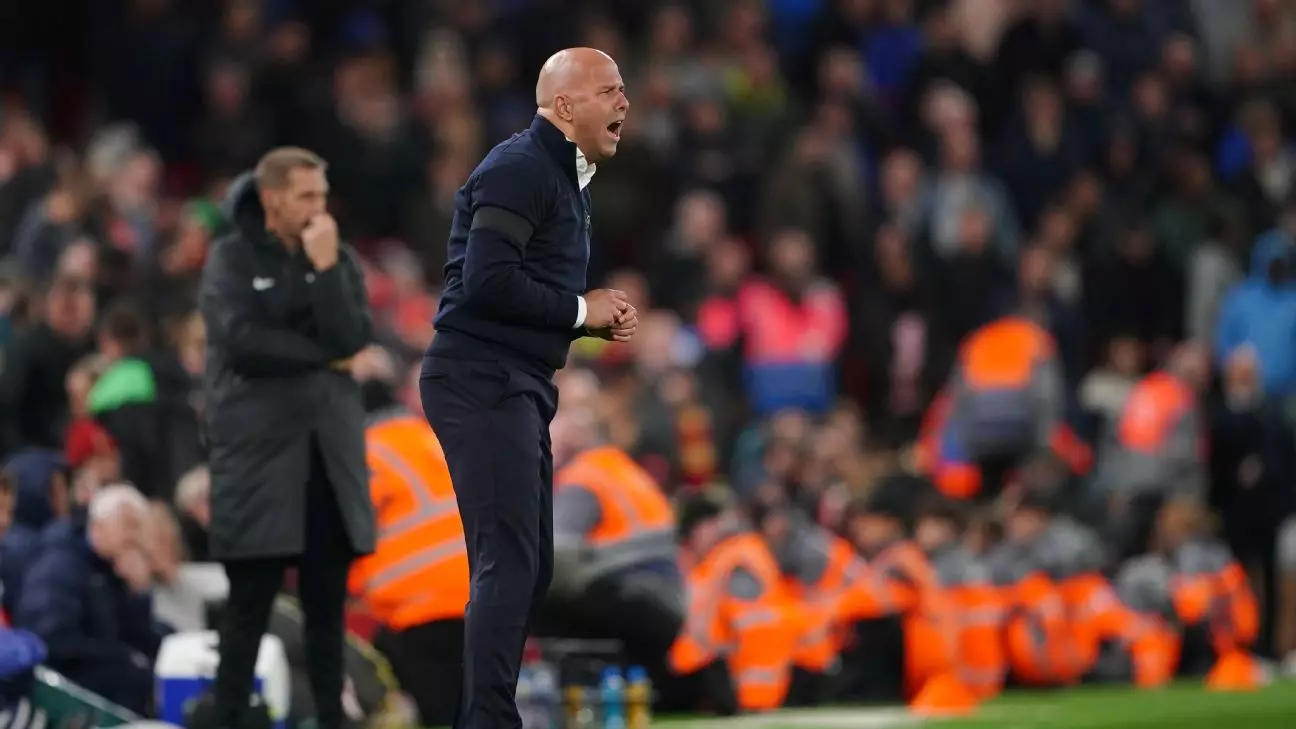In the electrifying atmosphere of Anfield, where passion meets expectation, it’s no surprise that matches are often laden with intense scrutiny—not just of the players but also of the officiating decisions. During the recent clash between Liverpool and Chelsea, referee John Brooks found himself navigating this charged environment. The stakes were sky-high, and the decisions made on the pitch influenced not only the outcome of the match but also how both teams and fans perceived the game’s integrity.
Ex-Feyenoord head coach Arne Slot’s remarks highlighted a nuanced tension: the assertion that a referee might relent to crowd pressures or expectations yet experience the contrary. In a venue famed for its vocal support, Brooks’ proceedings challenged the notion that the Anfield crowd could sway a referee’s judgment, which could have significant ramifications for how similar matches are called in the future.
Numerous pivotal incidents marked the Liverpool versus Chelsea duel, creating moments of controversy and debate. Early in the first half, a yellow card was issued to Tosin Adarabioyo for an infraction against Liverpool’s Diogo Jota. This decision raised questions even before the penalty drama unfolded. How much did the referee’s awareness of the crowd’s intensity influence this early call?
As the match progressed, Brooks’ decision to award a penalty to Liverpool following a challenge by Levi Colwill epitomized the fluctuating dynamics of officiating under pressure. Mohamed Salah’s successful conversion of the penalty put Liverpool ahead, extending their ascendancy amidst the roaring home supporters. However, chaos ensued as Brooks reversed a potential second penalty for a collision between Chelsea’s Robert Sánchez and Liverpool’s Curtis Jones, a crucial moment that stoked further discussions about the role of VAR. Initially suggesting a penalty, Brooks consulted VAR, engaging in a practice that has become a regular aspect of modern football yet invites its own set of challenges.
This critical decision-making process, influenced either by crowd fervor or technological oversight, could sway the match’s momentum. Chelsea bounced back with an equalizer just minutes into the second half, but it was Salah’s assist facilitating Curtis Jones’ decisive goal that underscored Liverpool’s resilience.
While Slot acknowledged the pressure on officials, he pivoted to emphasize the psychological effects of the crowd on players. He articulated a belief that the fervent support at Anfield ignited a collective energy among team members, effectively driving them forward in their efforts. Slot’s analysis indicates that while the referee may have remained resolute against crowd influence, the emotional highs and lows of the game played a significant role in shaping player performance.
Slot pointedly noted that despite the anticipated ‘easy penalties’ often associated with Anfield’s enthusiastic fans, reality can starkly contrast expectations. Liverpool’s victory exemplified their ability to cope with high-quality opposition, yet it also highlighted an underlying tension regarding the relationship between officiating and crowd atmosphere.
Slot characterized the encounter as one of the most challenging of his career, remarking on the quality of talent displayed by Chelsea. This statement underscores the heightened levels of scrutiny applied to refereeing decisions when teams are evenly matched and stakes are at their peak. It is crucial for match officials to assert their authority while also remaining just, and avoiding becoming the focal point amid passionate displays of support.
In the end, this clash between Liverpool and Chelsea encapsulated the delicate balance that referees must navigate: keeping control over the game’s integrity while being acutely aware of the competitive atmosphere. This match serves as a microcosm of broader issues within football, where officiating is constantly examined against the backdrop of crowd dynamics and team performance. As football evolves, so too must the frameworks that govern it, including how we train officials to handle such complexities with consistency and clarity—ensuring that the integrity of the game shines through, regardless of where it is played.

